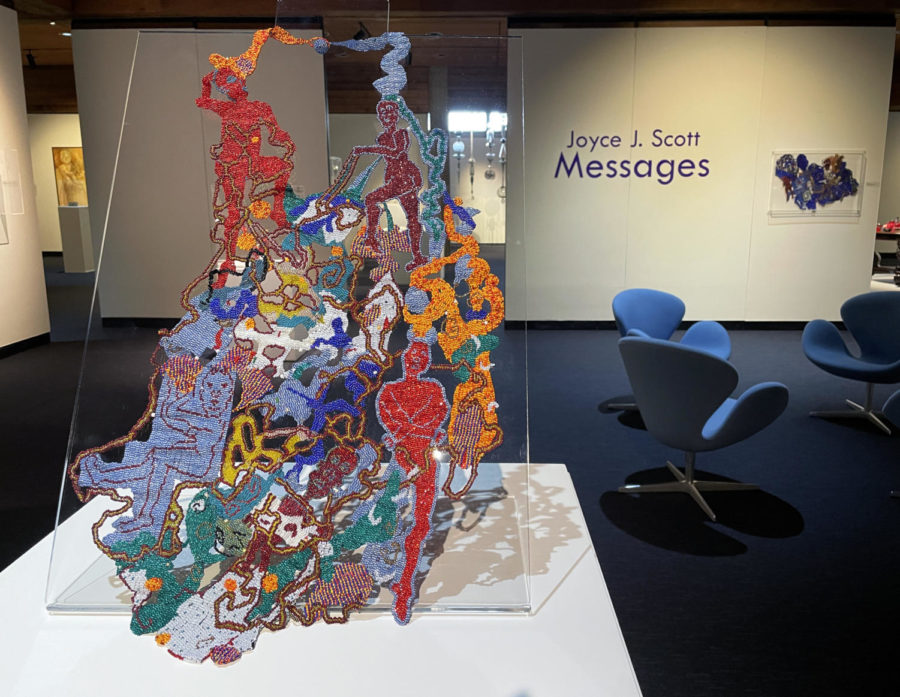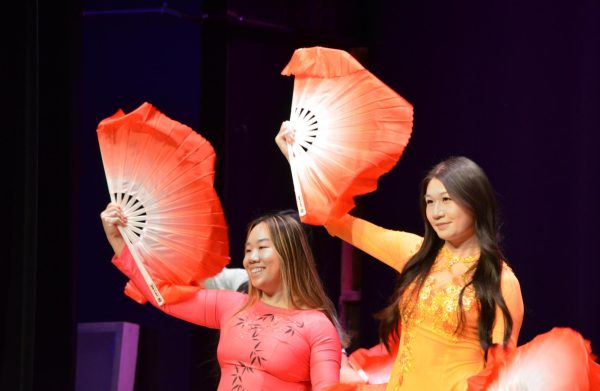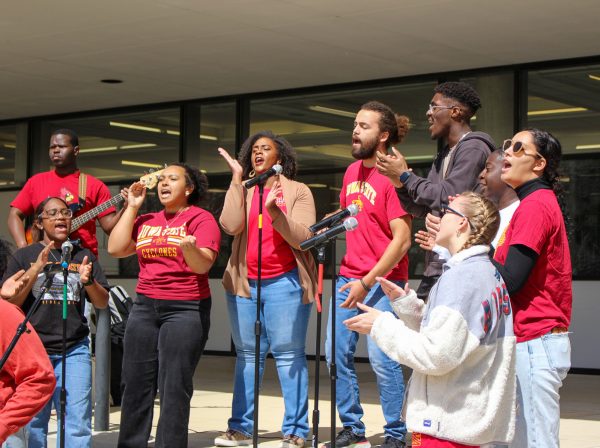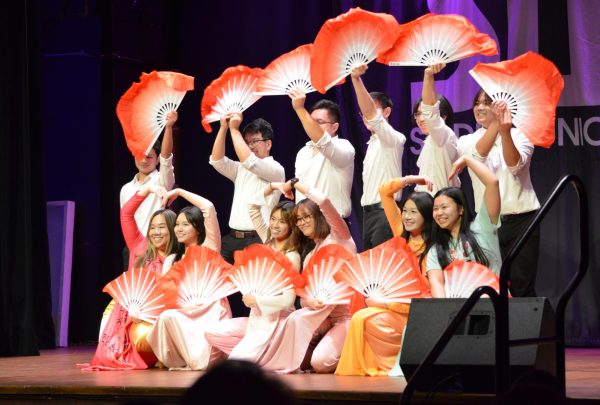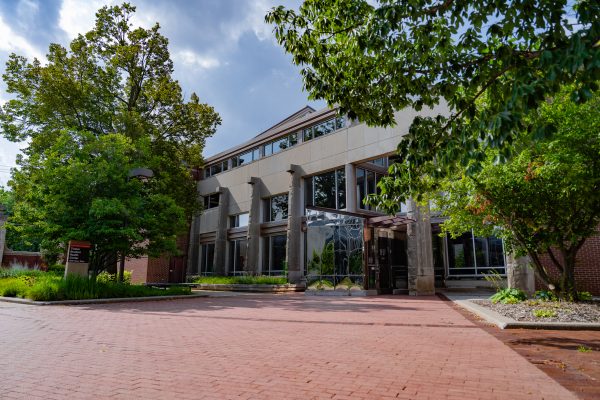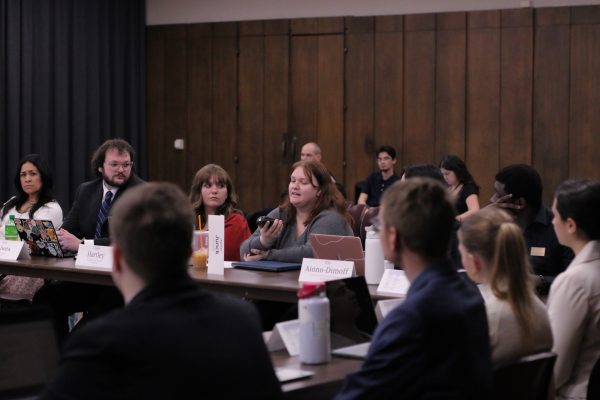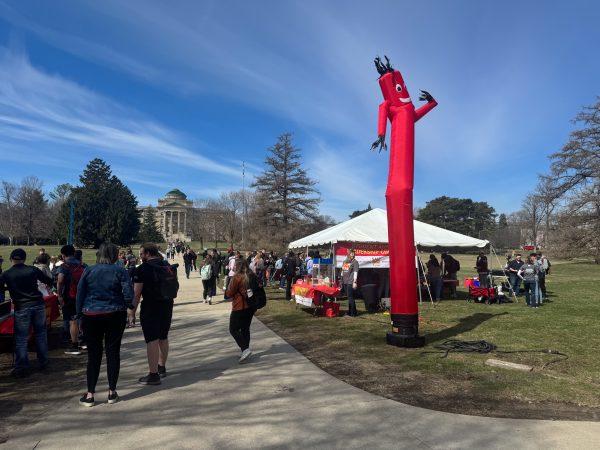Artist’s journey reflects heritage and importance of artwork as history
Fairytale Neckpiece, 2020 Joyce J. Scott Peyote Stitch, woven glass beads, thread Purchased by University Museums with funds from the Joyce Tomlinson Brewer Fund for Art Acquisition and Barbara Woods. In the permanent collection, University Museums, Iowa State University, Ames, Iowa. UM2020.38
McArthur Fellow and dynamic artist Joyce Scott shares the importance of weaving as a form of preserving family history through personal examples of her mom’s mentorship and the work of her grandparents, who were sharecroppers.
The virtual lecture, hosted by university museums Tuesday, had over 100 people in attendance. Scott shared the importance of quilting and weaving as a form of storytelling and history, how her art became a form of travel and the importance of mentorship.
Quilting as a form of history
“When people look at [Scott’s grandmother’s quilt], they say ‘I know what traditional African American artwork looks like’ as if any one group has only one style of work,” Scott said. “But no one group does one thing only.”
Scott said people think of Kente cloth from Africa and similar materials, but her grandparents lived in South Carolina as sharecroppers. Her grandparents picked cotton, and some of the quilts were made from the same cotton that was bought or swapped.
“My mom says her most [fun] time was to go under the quilt because that’s where they make their samplers,” Scott said. “They listen to all the family stories, and they also zip up the needles that stuck in or fell through the fabric.”
Joyce shared slides showing her grandfather’s quilts and said that she did not go back and fix the tattered part of the quilt because when a quilt became tattered it was not thrown away. Rather, Joyce said it became another page in the book, a sentiment she learned from her mother.
“She actually said to me ‘Joyce, if you love this, you ought to put a new page in the book,’” Joyce said. “You want to write on it, meaning artists stitch it because there are diaries for preliterate people.”
Joyce said these quilts became a solution to keeping the stories of the family going.
Needle and thread for a passport
Joyce said she began doing art at the age of five when her mother, Elizabeth Caldwell Talbert Scott, a celebrated textile artist, began to teach her.
“My mom gave me a passport: the needle and the thread,” Scott said. “Wherever I’ve gone in my life, there’s always been somebody somewhere who’s sewing, who’s weaving, who’s using textile.”
Joyce shares how her education in crafts and fine arts in Mexico allowed her to experience a country with ancient culture and a life that was not as restraining as living in Baltimore was.
“It was a true education, not just about crafts but about humanity,” Scott said. “It didn’t matter if I was a Black person or not… It doesn’t matter what ethnic group I am, it was just me.”
Joyce said that her needle and thread as a passport allowed her to study various weaving techniques from different cultures such as Western, Ashoka, Nigerian and Navajo weaving.
“When I talk about my having this needle and thread as my passport, it has led me into many very interesting tight spots where someone wants to find out how and what I did and why I was doing it,” Scott said. “In using that or showing my artwork, I not only got to talk about my history but about the history of African Americans, Africans and, of course, the United States.”
Mentorship
Scott said that in her experience teaching, the majority of her students were white and not Black or Brown, and mentoring gives Scott the chance to share her joy with everybody.
“I’m always trying to extend my knowledge and my joy about the work,” Scott said. “I’m also now trying to have more and more African American mentees.”
Currently, Scott is taking part in a form of mentoring she refers to as “sideways mentoring,” because her mentees are adults whose work she introduces to a museum. Scott originally thought these interactions were simply introductions, but they grew into mentorships and working together.
“But I’m not someone who just holds the secrets or all that stuff because that’s not how I was taught,” Scott said. “Sandy, [Scott’s mentor] who was a Creek native and Indigenous lady, we were really hanging out, and she taught me that, and it changed everything for me.”
Your donation will support the student journalists of the Iowa State Daily. Your contribution will allow us to purchase equipment, send our student journalists to conferences and off-set their cost of living so they can continue to do best-in-the-nation work at the Iowa State Daily.


